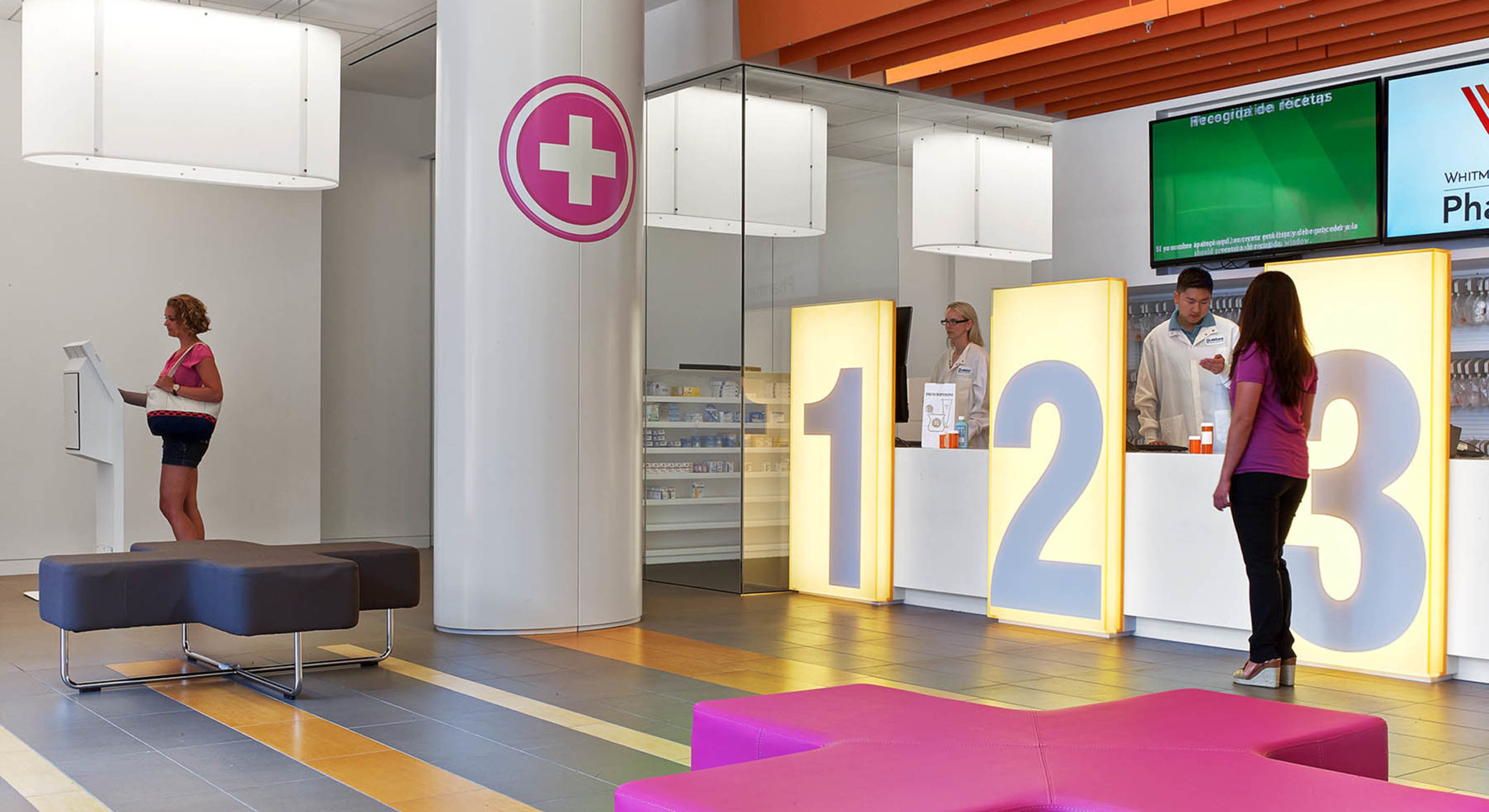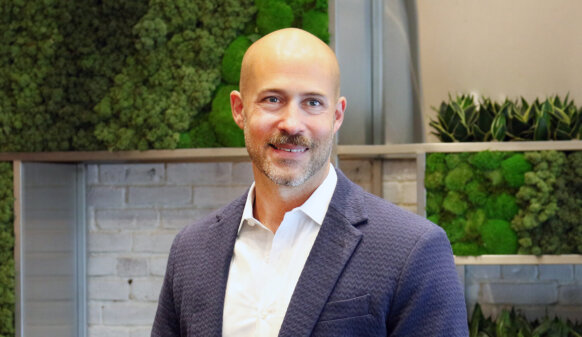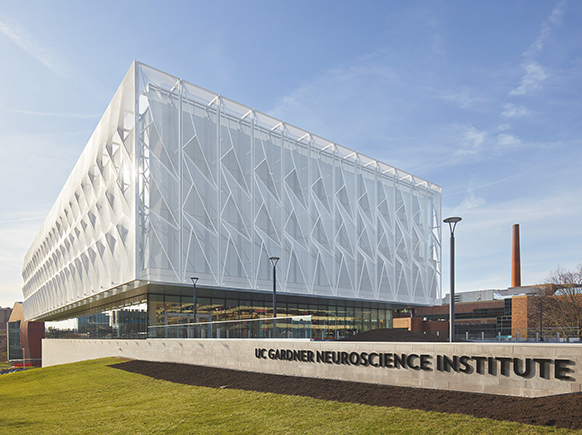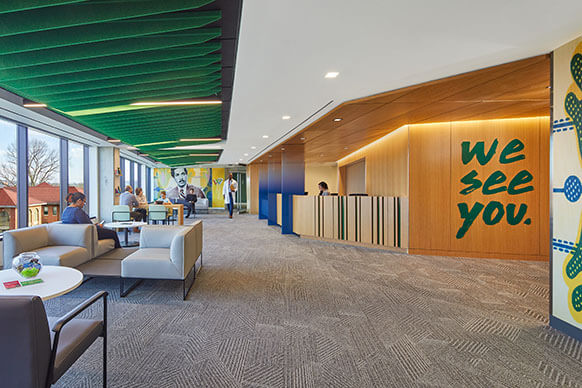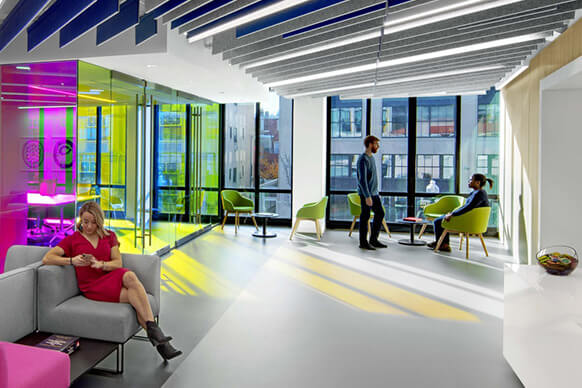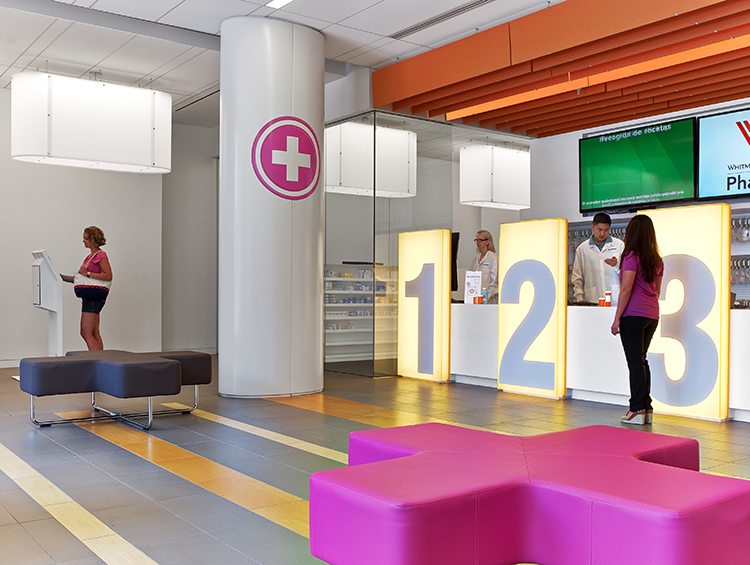
Whitman-Walker Health, Health Center
Opened by Dame Elizabeth Taylor in 1993, the Whitman-Walker Health name carries great significance to LGBTQ communities across the US. In the decades since, Whitman-Walker Health has provided stigma-free healthcare and legal services throughout the AIDS epidemic and beyond.
Whitman-Walker Health, Health Center (WWH) is a federally qualified health center focused on serving the LGBT community in the Washington, D.C. Logan Circle area.
Our design team collaborated with Whitman-Walker Health to add a new facility to its portfolio, ensuring the continuation of its holistic model of care. Our team designed this new health sanctuary to provide a medical-home model of care. The facility is vibrant and colorful, which reflects the center’s diverse clientele and urban location. The new center – dubbed ‘1525’ by its staff – supports Whitman-Walker Health’s holistic model of care which includes medical, dental, and behavioral health services.
Natural light floods the spaces across the center which includes a retail pharmacy, physical therapy suite, travel medicine clinic, and research lab.
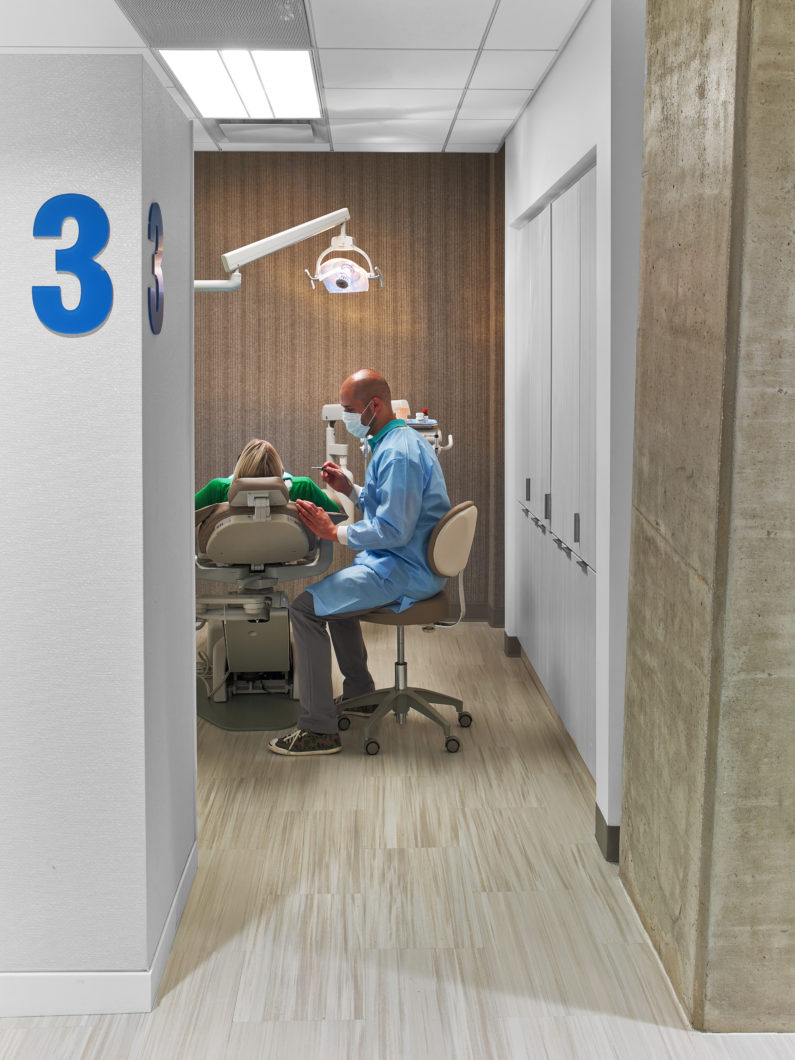
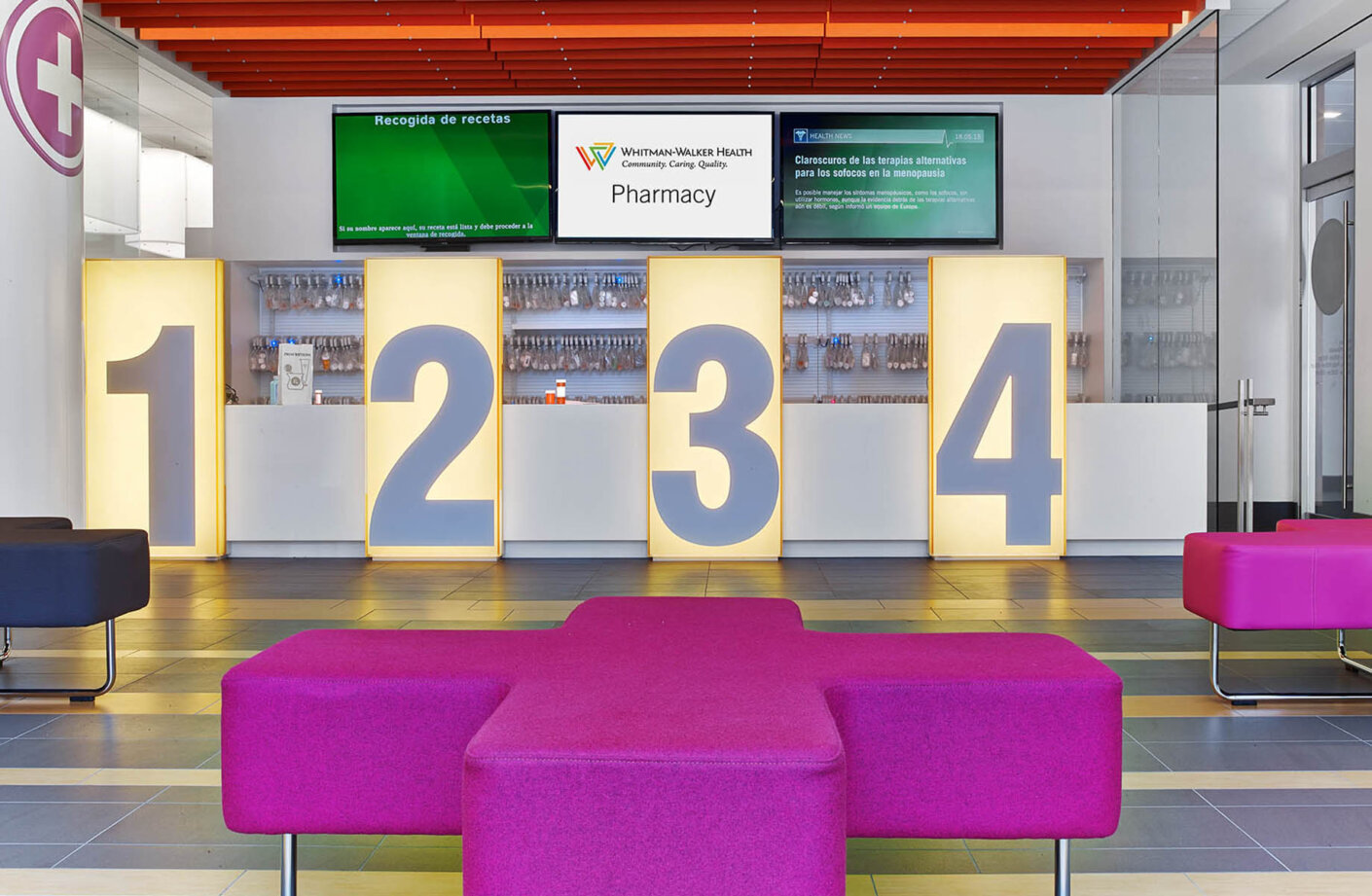
Dr. Raymond Martins, Chief Medical Officer, Whitman-Walker Health Center
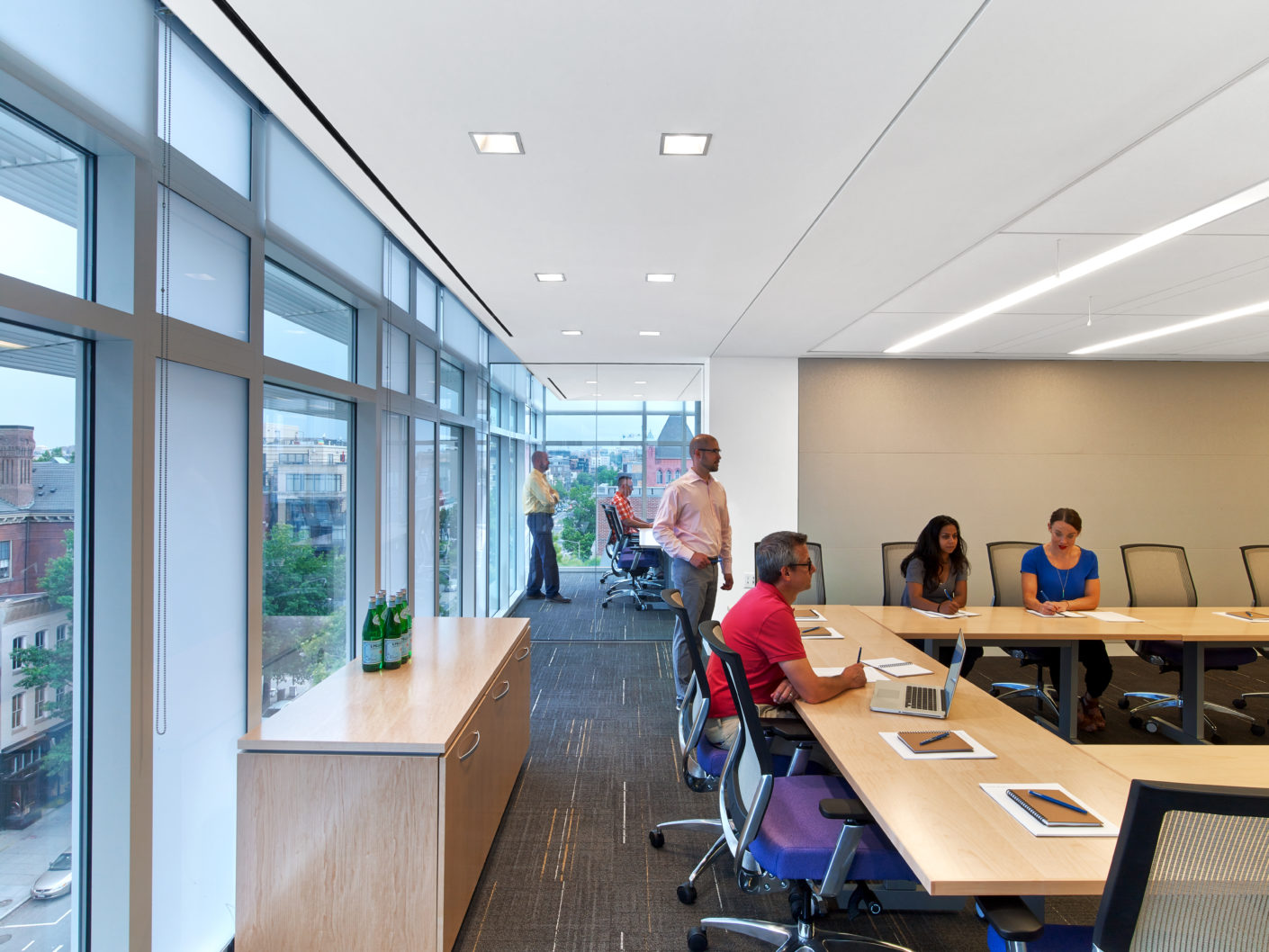
Digital educational pamphlets were developed to educate employees and patients about the sustainable features of the space. Additional signage was posted throughout the facility to educate employees about greening day-to-day behaviors that maximize performance of the space.
Ergonomic tools, including adjustable keyboard trays, monitor arms, task lights, and task chairs were selected for workstations to support employee health and wellness.
